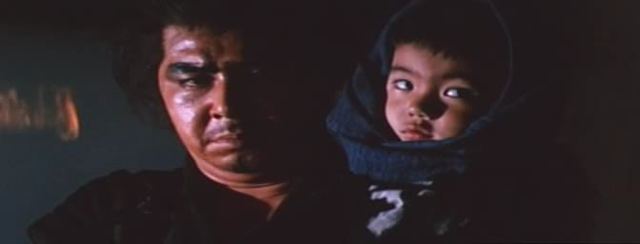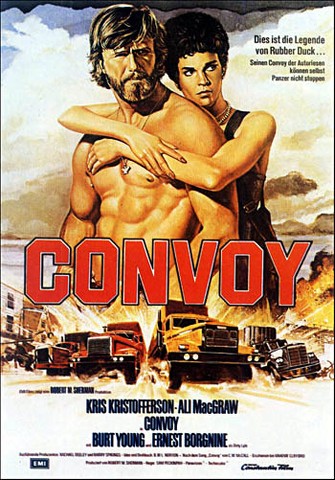![]()
![29f7c043f76a2bde437fd0d52a185152]()
Synopsis:
The protagonist Chujiro, who possesses many attractive qualities, is a victim of unkind circumstances: his mother abandoned him as a child, so he had no choice but to live outside society. Even so, he grows up determined to reunite with her. Worried that she might be living in misery, he saves his money to help, only to find that she has married into wealth and social position and has no intention of seeing her outcast Yakuza son…
Review:
With good script for a classic tale, & well acted, In Search of Mother (Mabuto no haha, 1962) is quite a good film from a fine director, Tai Kato, plus a soundtrack that is often amazing, especially for poetic passages.
In Search of MotherIn Search of MotherIt’s occasionally been shown under alternate titles including Searching for Mother, Long-sought Mother, Mother of My Memory, The Image of My Mother & Love for a Mother. It combines jidai-geki (period action film) with haha-mono (mother tales).
It’s a remake of a silent film classic Memories of Mother (Banba-no-Chutaro: Mabuta no haha, 1931) starring Chiezo Kataoka.
The play premiered early in 1931, on the kabuki stage, & was a film by year’s end. It was based on the actual life of playwright Shin Hasegawa (1884-1963). The play is still frequently launched, & the story has even found its way into manga comics & a video game.
The film begins with an action scene which simultaneously establishes two friends’ characters, Chutaro (Kinnosuke Nakamura) the orphaned wanderer or toseinin, & Hanji (Hiroki Matsukata) a young naive gangster or yakuza.
After an attempted revenge for Hanji’s oyabun (gamblers’ godfather), the two men hit the road in separate directions, pursued by by angry yakuza.
In Search of MotherHanji returns to his home village, but has inadvertently led some very bad guys to the home of his mother & his sister Onui (Hitomi Nakahara). His desire to leave the yakuza world & do right for his mother seems likely to be foiled, given the repurcusions of his former actions.
Orphaned Banba-no-Chutaro in time turns up in the same village, full of eagerness to fight Hanji’s battle so Hanji can enjoy, please, & appreciate the family which Chutaro does not possess & so cannot displease.
Soulful Chutaro is despised by Hanji’s mother, as she assumes he’s been the bad influence on her son. “If Hanji had decent friends, he wouldn’t be in this trouble.” But Hanji’s sister realizes what a true friend Chutaro has been to her brother, & before you know it, Onui’s in love.
In Search of MotherWith plenty of yakuza mayhem & swordplay, interspersed with the sad tales of Hanji disappointing his mother & Chutaro seeking the mother from whom he was separated at age five, it balances nicely for action-packed & touching drama.
Chujiro’s life as a toseinin drifting from place to place has permitted him to search always for his mom. This could easily have been a children’s story, but is too well played to lose adult interest.
He strives to be a filial young man to a mother he barely recalls, & this desire makes him susceptible to the needs of any woman around his mother’s age. This defines his heroic actions as well as his tears.
Chutaro meets an old blind woman who plays shamisen on the roadside. She once had a child, when she was a young woman, but gave him away & lives in regret. Her story heightens the young man’s inate chivalry.
In Search of MotherHe arrives in Edo with the Ioka gang still after his life. But big city yakuza at least have no interest in helping bumpkin gangsters. He hooks up with a gambling ronin, Komata Yasuke (Isao Yamagata), who has had a lucky evening gambling.
Through Komata’s flunky friend Kingoro (Kensaku Hara), the ronin is able to offer his services as yojimbo (bodyguard) to the Ioka gang.
Time passes & Chutaro has become somewhat settled as a town knight & gambler. One day he intervenes in behalf of Otora (Sadako Sawamura), a diseased-looking old beggar prostitute.
She horrifies Kingoro, who beat her up until Chutaro stopped him, always eager to assist down-&-out women his mother’s age. But it means Kingoro’s already budding dislike for the chivalrous youth increases in his heart.
Otora’s story seems much too grim for a youth-oriented film, but director Tai Kato treats even youth tales with a certain maturity.
In Search of MotherOhama (Michiyo Kogure) in contrast is a luckier woman, who runs an inn. But Otora reveals that Ohama is a cruel person who abandoned her son, & Chutaro’s interest in Ohama as possibly his own mother increases.
Ohama is trying to marry off a daughter for purposes of scaling the social ladder. Escaping one’s social status for one better is not an easy thing in a rigid class system, & she must herseolf appear to be of good reputation if she’s to have a marketable daughter.
She thus coldly turns her back on friends of her humble beginnings, & is not at all willing to confess she abandoned a son.
Her cruelty breaks Chutaro’s heart, & she’s almost melted by it, but will not bend. She has no desire to acknowledge a yakuza son. He leaves her, saying, “Madame, I will not come here again.”
Chutaro JizoHe departs with his lifelong quest no missing from his heart, without even his faint memories & idealized inventions of his life as a five year old with a mother he loved. He presently regrets only that he could not meet his sister before going away forever.
Too late Ohara regrets sending him away, chastised by her own daughter who would love to know her brother. Realizing her terrible error, she & her daughter set off to stop Chutaro.
On the road outside of Edo, Chutaro meets the ronin scum Kingoro, an abject loser who has joined the bumpkin yakuza who are after Chutaro’s life.
He asks these rural gangsters if they have mothers. When they say they do not, he kills them more easily. Lastly he faces the better-trained ronin, then having proven his own savage nature, feels he must evade his own mother & sister who are trying to find him in the night, calling out for his return.
His shame as a gambler, of having killed men, won’t let him come forth from hiding. The tragedy of this beautiful little film may well be maudlin melodrama, but it’s so effective, & Kinnosuke as Chutaro with tears in his eyes truly evokes depths of sorrow.
This tale has long impressed itself upon the Japanese imagination, & there is even a “Chutaro Jizo” god erected by Shin Hasegawa in 1958 at Renge-ji (Red Lotus Temple) in Kyoto, to which people still make pilgrimages in order to pray for reuinions with a lost parent or other loved one.
— Paghat (Weird Wild Realm.com)
![]()
![]()
![]()
![]()
![]()
![]()
![]()
![]()
http://nitroflare.com/view/EE8C87AD1AA22A0/Mabuta_no_haha_%28The_Mother_He_Never_Knew%29_%281962%29_–_Tai_Kato.mkv
https://uploadgig.com/file/download/6Ed37e8c1a7e079A/Mabuta no haha The Mother He Never Knew 1962 — Tai Kato.mkv
Language(s):Japanese
Subtitles:English, Russian (muxed)

















































































































































